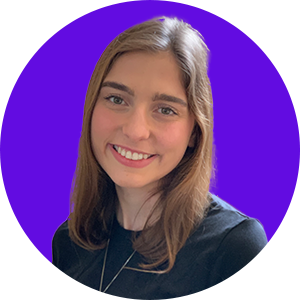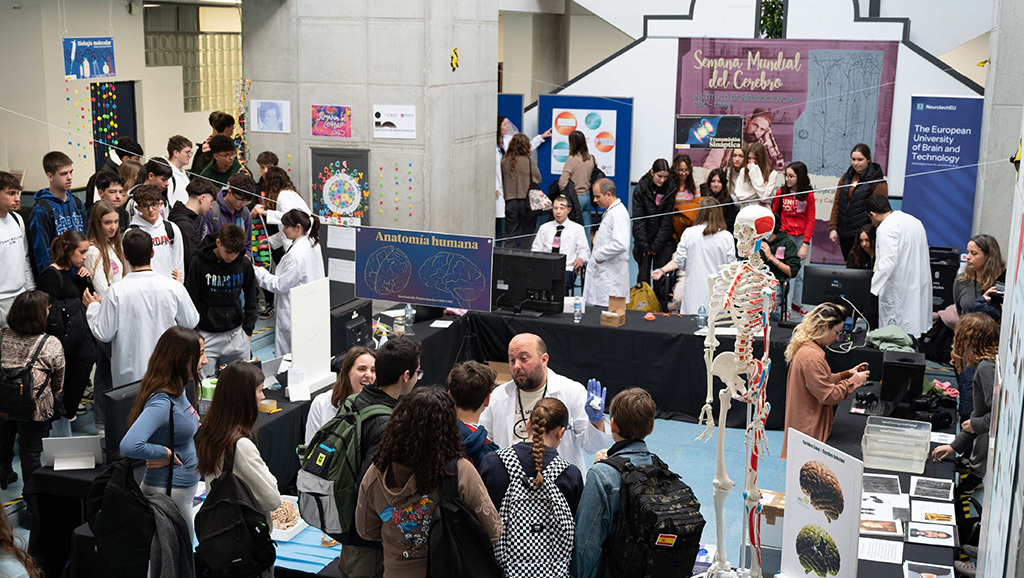News & Insights
A New Opportunity for Neuroethics Education in South Africa
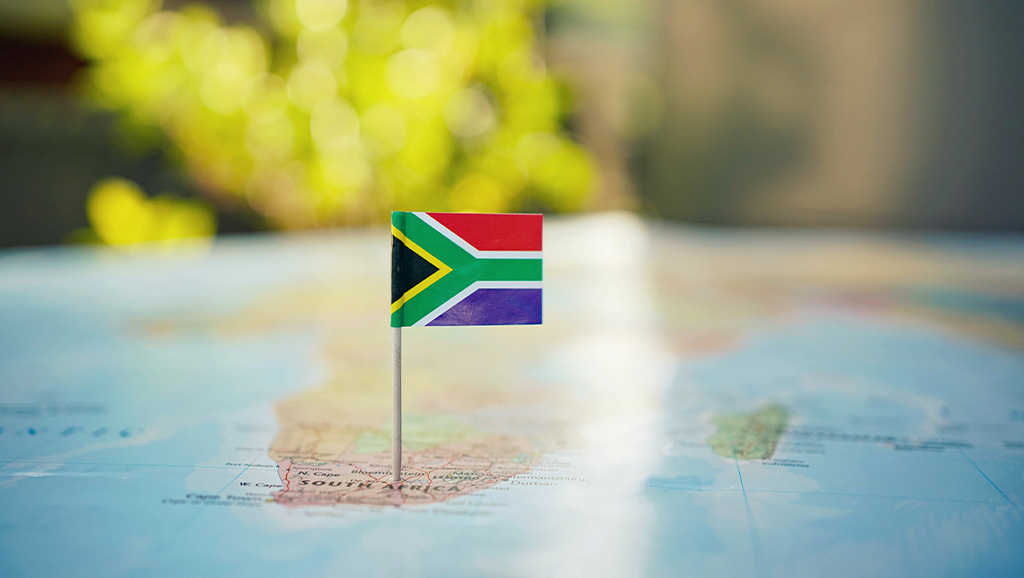
As neuroscience advances and ethical considerations around issues such as access, autonomy, and privacy become more urgent, it’s important for different—and global—perspectives to be included in the discussion. A new, first-of-its-kind course from Stellenbosch University in South Africa aims to train the next generation of African scholars to help shape that conversation. Running November of this year through May 2026, the African Neuroscience, Neuroethics and Society short course will provide masters-level training in neuroscience and its ethical implications for society in South Africa, with the goal to enroll students continent-wide over the next few years.
The program is co-led by Olivia Matshabane, Ph.D., a neuroethics researcher in the department of psychiatry at Stellenbosch University and principal investigator of the Africa Neuroethics Research Group, and Professor Soraya Seedat, Ph.D., M.D., director of the university’s SAMRC/SU Genomics of Brain Disorders unit and executive head of the psychiatry department. In addition to their expertise, Matshabane and Seedat have collaborated and will continue to collaborate with many national and international experts across disciplines, including neuroscience, psychology, psychiatry, data science, bioethics and philosophy, to create and sustain the course.
“I understand the frustration of wanting to engage in neuroethics that is locally relevant,” said Matshabane. “However, [we are] unable to do that in the way that emerging scholars from other more established fields can because neuroethics is only just beginning to grow in Africa. … We need to start incorporating neuroethics discussions much earlier in the academic journey.”
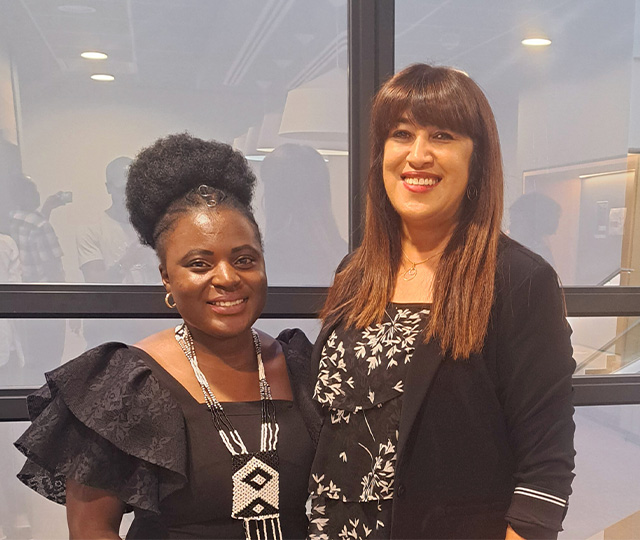

Olivia Matshabane (left) and Soraya Seedat (right)
The course is supported under the Dana Foundation’s NextGen program, which aims to build and support the next generation of neuroscientists and non-scientists interested in the brain. Interdisciplinary and experiential training in higher education are important factors for NextGen support, combining neuroscience with the non-STEM approaches and providing opportunities for practical learning. It is one of the first international programs to be funded by Dana NextGen, creating a unique and exciting opportunity for both the Dana Foundation and Stellenbosch University.
Matshabane, Seedat, and the team are recruiting up to 25 master’s students to participate in the course, in addition to their graduate coursework. The students will come from a variety of backgrounds including neuroscience, public health, bioethics, psychology, and clinical genetics. “[This] diversity is part of what makes this course so exciting—we expect to learn as much from our students as they will from us!” Matshabane added.
In alignment with NextGen’s vision, the course has three goals, referred to as “the 3 E’s” by the team:
- Enhance knowledge on neuroscience and neuroethics in African society and globally.
- Empower the next generation of emerging African scholars with the ability to identify, critically analyze and reflexively approach complex neuroscientific issues that warrant neuroethical reflections on their impact in Africa and globally.
- Expand African representation in the fields of neuroscience and neuroethics by the year 2040.
To achieve these goals, the course is designed to operate under three modes, Matshabane explained: online and in-person teaching from local and international scientists, including neuroscientists and neuroethicists, and community-engaged experts, monthly group mentoring from expert scientists that are involved in the Stellenbosch University Neuroethics Working Group, and peer learning through a community-engaged neuroscience group project.
“We hope that this program will help us with equipping next generation of scientists and non-scientists in Africa to think critically about the implications of neuroscience developments in society,” said Matshabane. The course aims to equip students to share this knowledge with their local communities and, importantly, with the international community at the Neuroethics 2026 Annual Meeting. Hosted by the International Neuroethics Society, the meeting will have an African hub which will take place at Stellenbosch University next year, with Matshabane and Seedat as co-chairs.
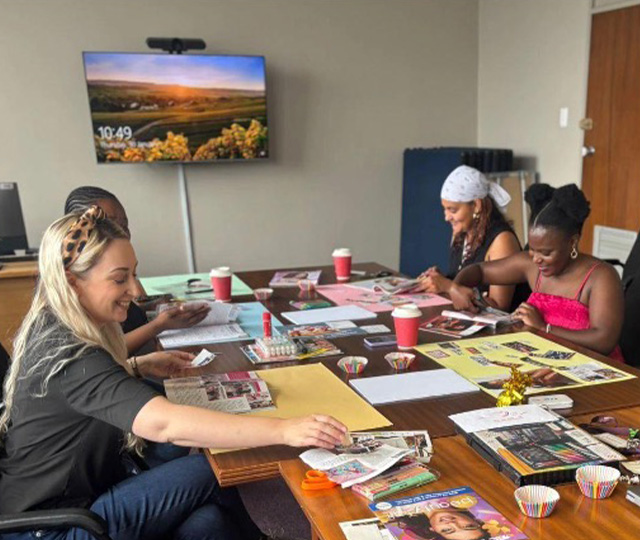

Students in the Africa Neuroethics Research Group envision how to expand neuroethics education in Africa.
The African Neuroscience, Neuroethics and Society short course is specifically designed to serve society in Africa and beyond. “We believe that everyone in society should have the opportunity to engage in these discussions—not only the select few who gain access to the rooms where they take place, especially since these spaces are often far removed from their communities and from Africa” said Matshabane.
The need for neuroethical discussions in Africa is not just important to Matshabane, Seedat, and team but also to their students. The Africa Neuroethics Research Group, a collective of students led by Matshabane, helped devise the short course. “Co-creating the course with them enabled us to include aspects especially meaningful for master’s students—elements we might not have anticipated on our own.”
While the first cohort will end in May, Matshabane and Seedat anticipate the program to continue and flourish. “Within the next year, we envision the program establishing a strong foundation as a leading platform for neuroethics training on the continent” Seedat said.
Looking to the future, she foresees the program expanding continent-wide, becoming a national hub for neuroethical education and dialogue grounded in societal considerations. In five years, “we aim to have an expanded network of alumni who are leading neuroethics research, integrating ethical reflection into neuroscience practice, and influencing national and regional frameworks,” she said.
Collaborators on this exciting new initiative include Professor Laila Asmal (Stellenbosch University), Dr. Cornelius Ewuoso (University of Witwatersrand), Professor Bonga Chiliza (University of KwaZulu-Natal), Dr. Kate Webb (Duke University) and Dr. Judy Illes (University of British Columbia).
